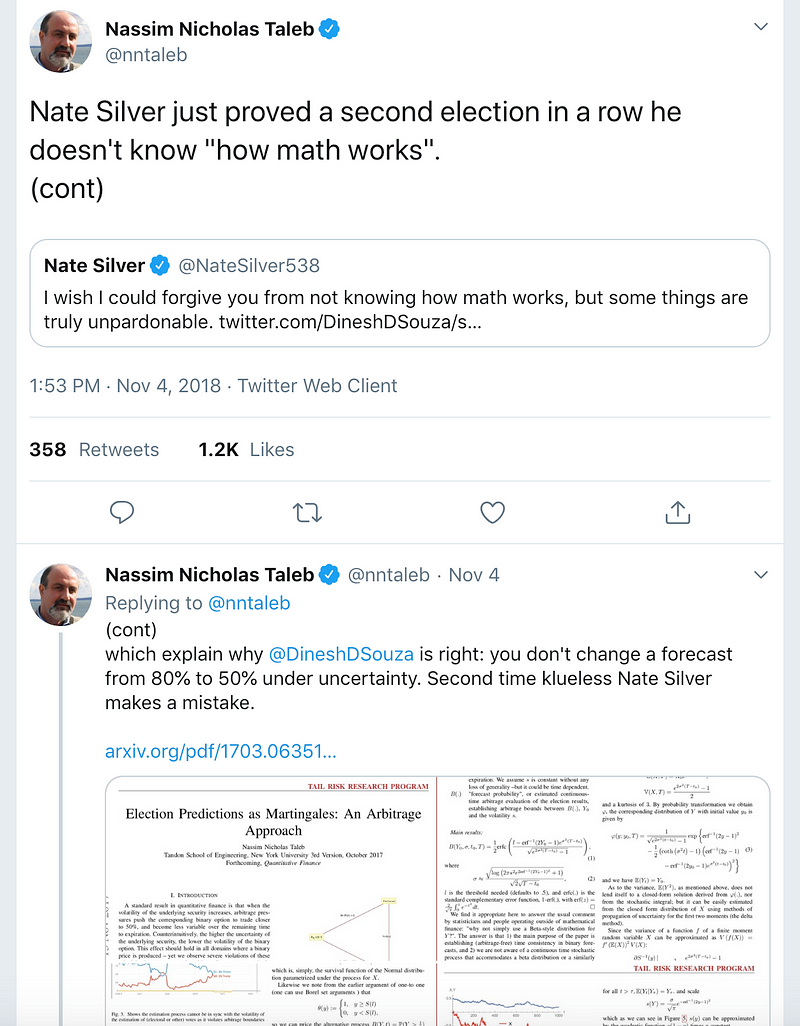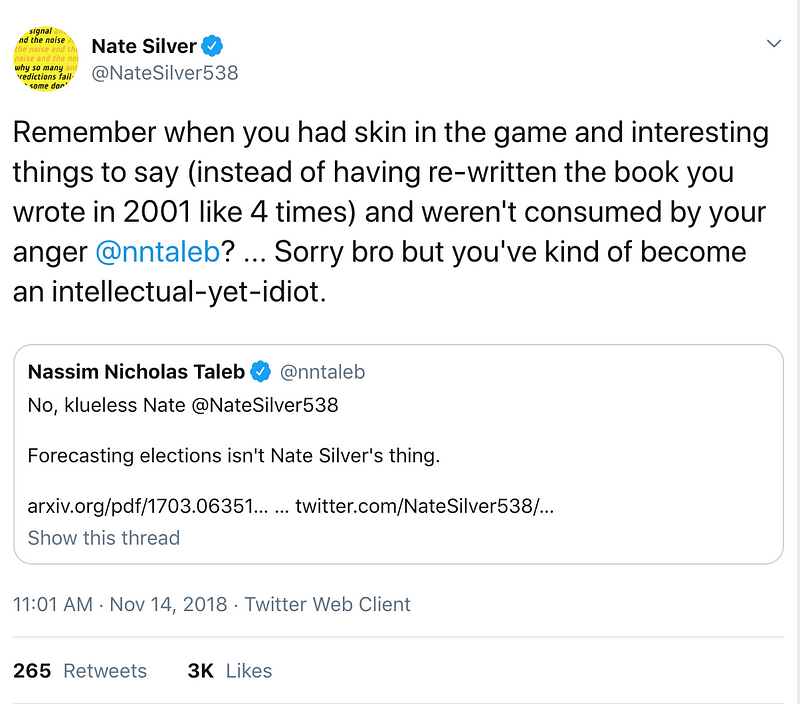How can two data experts disagree so much?
An obscure controversy has reared its ugly head again this past month. Two icons of the quantitative analysis community have locked horns on the greatest of public stages, Twitter. You may be forgiven for not following the controversy: I’ll do a quick review for the uninitiated. All code and data used to create this article can be forklifted from this MatrixDS project.Nate Silver is the co-founder of FiveThirtyEight. A massively popular data focused blog that gained fame for its accuracy predicting the outcomes for the U.S. elections in 2008. Silver generates predictions using a clever poll aggregating technique which accounts for biases, such as pollsters who only call people with landlines.A trained statistician, via economics, he directed his passion for baseball (sabermetrics) and poker analytics into the arena of politics. In fact, the name FiveThirtyEight is a nod to the number of U.S. electoral votes (538 of them). However, the blog also covers other interest areas like sports. Nate sold his blog to ESPN and took the job of Editor in Chief. They (ESPN) used it as a platform to feed their audience with forecasts of sporting events, FiveThirtyEight has since moved to ABC. A routine visit to their website is greeted with a mix of political and sports articles with detailed predictions and data visualizations.
Nate’s forecasting prowess has become accepted as canon in the popular media. He is a routine guest on many nationally televised shows to discuss his predictions during every national election cycle. So it came as quite a shock when Nassim Taleb, a best-selling author, and quantitative risk expert, publicly announced that FiveThirtyEight does not know how to forecast elections properly!
For his part, Taleb has become extremely successful due to his shrewd understanding of probability in the real world. His books are both philosophical and technical, with a focus on uncertainty and risk. Specifically, he believes that the vast majority of quantitative models used in practice do not sufficiently account for real-world risk. Instead, they give the illusion of short-term value (like being accurate in some well-understood situations) but expose the unknowing users to enormous systemic risk when they experience situations the models are not designed to understand.Taleb gained fame, in part, because he puts his philosophy into action by exposing his wealth. Malcolm Gladwell wrote an article in the New Yorker on how Taleb turned his philosophy on risk into an incredibly successful investment strategy. He has since gained significant wealth during unforeseen market events such as the Russian debt default, 9/11, and the financial crisis of 2008. Taleb now spends much of his time writing and deadlifting (I’m jealous of this bit). He is not shy about telling someone publicly that he disagrees with them: One of those people is Nate Silver.

Taleb’s Tweets directed at Silver November 2018
However, Silver isn’t taking the insults lying down!

...MUCH MORESilver and Taleb, with three million and 300k followers respectively, create an enormous buzz with these exchanges (starting back in 2016). However, a quick read through the comment threads and you will realize that few people understand the arguments. Even Silver himself seems taken off guard by Taleb’s attack.I think, however, this is a great opportunity for a data science professional (or aspiring professional) to dig deeper into what is being said. There are implications on how we choose to model and present our work in a reliable and verifiable way. You must decide for yourself if Taleb has a point or is a just another crazy rich person with too much time on his hands....